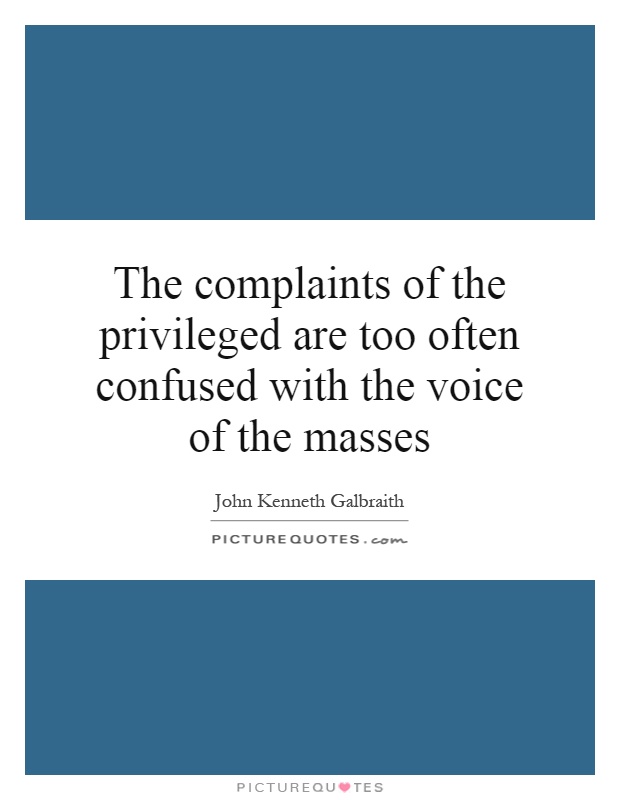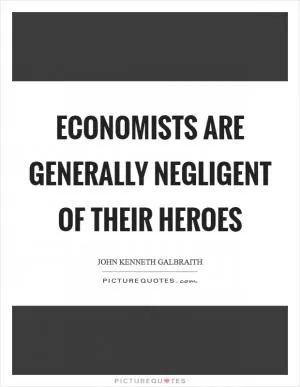The complaints of the privileged are too often confused with the voice of the masses

The complaints of the privileged are too often confused with the voice of the masses
John Kenneth Galbraith, a renowned economist and social commentator, was known for his sharp critiques of the privileged class and their tendency to conflate their own complaints with the voice of the masses. In his works, Galbraith highlighted the ways in which the wealthy and powerful often dominate public discourse and shape policy decisions to benefit themselves, while claiming to speak on behalf of the broader population.Galbraith argued that the complaints of the privileged are often self-serving and disconnected from the realities faced by the majority of people. He pointed out that the wealthy elite have the resources and influence to amplify their voices and push their agendas, while marginalized groups struggle to be heard and have their needs addressed. This imbalance in power and representation leads to policies that prioritize the interests of the few over the needs of the many.
One of Galbraith's most famous works, "The Affluent Society," delves into the ways in which the affluent class in America has shaped economic and social policies to benefit themselves, while neglecting the needs of the less fortunate. He criticized the obsession with consumerism and material wealth that characterized post-war America, arguing that it led to a neglect of public goods and services that are essential for the well-being of society as a whole.
Galbraith also highlighted the ways in which the privileged class uses their influence to shape public opinion and control the narrative around issues of social and economic justice. He argued that the voices of the wealthy and powerful are often given undue weight in public debates, while the perspectives of the marginalized and disadvantaged are marginalized or ignored.












 Friendship Quotes
Friendship Quotes Love Quotes
Love Quotes Life Quotes
Life Quotes Funny Quotes
Funny Quotes Motivational Quotes
Motivational Quotes Inspirational Quotes
Inspirational Quotes